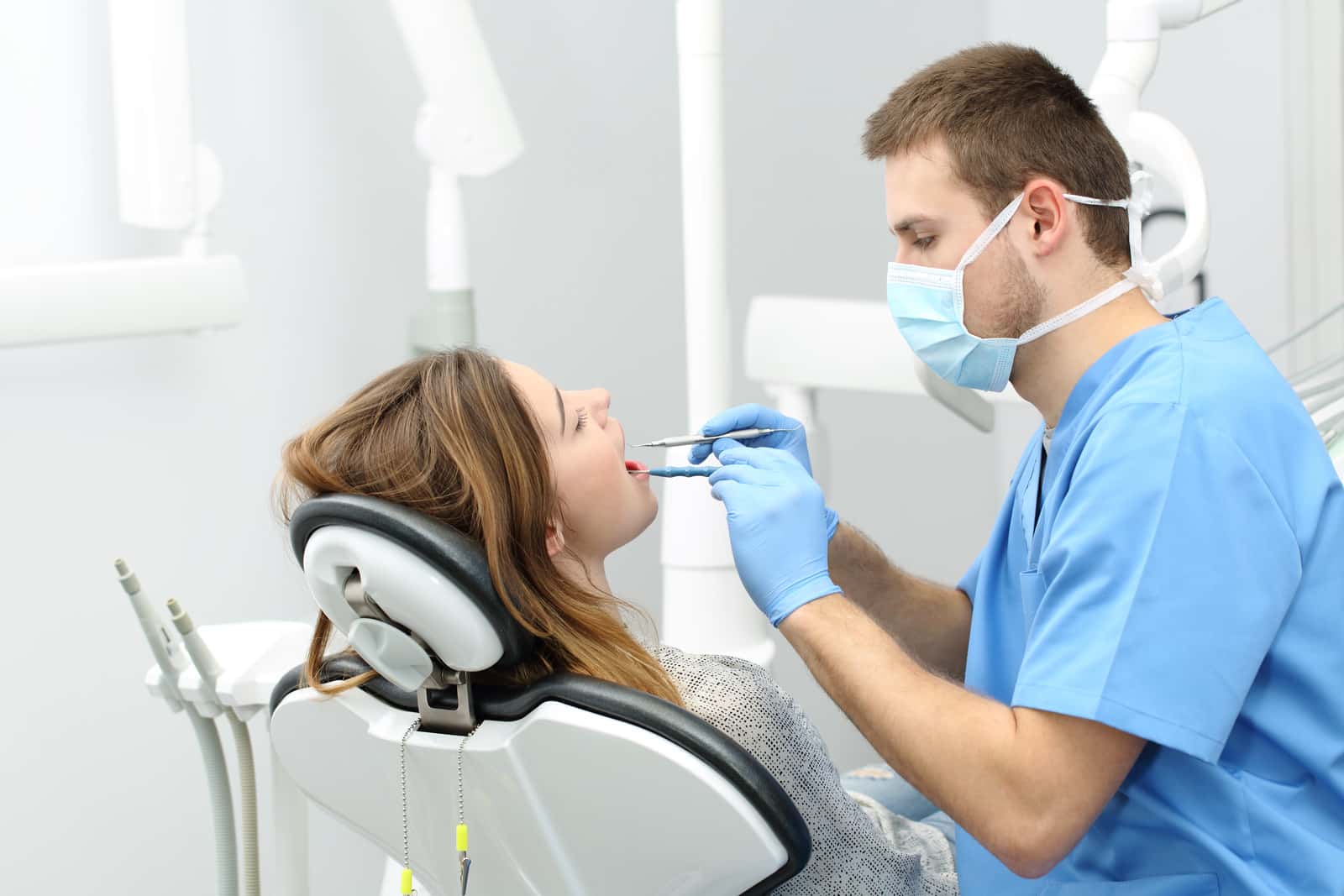Discover the Top Dentist Eugene Oregon Homeowners Trust for Exceptional Treatment
Discover the Top Dentist Eugene Oregon Homeowners Trust for Exceptional Treatment
Blog Article
An Overview to Common Dental Conditions That Need a Dentist's Treatment
Recognizing the range of dental problems that require professional care is critical for keeping optimum dental health and wellness. Toothaches, for example, can be symptomatic of serious issues such as cavities, fractured teeth, or abscesses, each calling for specific interventions like dental fillings or root canals. Gum tissue condition, from the onset of gingivitis to much more severe periodontitis, emphasizes the value of routine dental exams and cleansings. Influenced wisdom teeth and jaw disorders can introduce substantial discomfort and difficulties. Ensuring prompt visits to the dental expert can reduce these issues successfully, but just what are the indications and therapies involved?
Toothaches
Toothaches are a typical oral condition that can vary from mild discomfort to severe pain, commonly indicating an underlying problem that requires expert focus. This discomfort can originate from a range of resources, consisting of dental tooth cavities, broken or fractured teeth, and dental abscesses. Each of these problems presents significant dangers if left unattended, potentially bring about much more serious issues.
Dental dental caries, likewise recognized as cavities, are created by the buildup of plaque that deteriorates tooth enamel, leading to holes or pits in the affected teeth. Abscesses are excruciating infections at the origin of a tooth or between a tooth and the gum tissue, usually resulting from severe decay or neglected tooth cavities.
Effective treatment of toothaches involves dealing with the root reason. This may include fillings for dental caries, crowns for split teeth, or origin canals and antibiotics for abscesses. Early treatment by a dental professional can prevent further wear and tear and alleviate pain, ensuring optimum dental health.
Periodontal Disease

The key source of gum tissue illness is bacterial plaque, a sticky, colorless film that frequently creates on teeth. Poor dental hygiene, smoking, hereditary proneness, and particular clinical conditions, such as diabetes mellitus, can intensify the danger of developing gum condition. Routine dental exams are critical for early discovery and monitoring of this condition.
Therapy for gum tissue disease ranges from specialist dental cleansing and scaling to more advanced treatments like root planing and gum surgery, relying on the intensity. Maintaining excellent oral hygiene practices, consisting of brushing twice daily, flossing, and utilizing an antiseptic mouth wash, can considerably lower the danger of periodontal condition and promote healthier periodontals.
Tooth Cavities
Dental caries, also called oral decays, are a common dental condition defined by the damage of tooth enamel as a result of acid-producing microorganisms in the mouth. These bacteria flourish on sugars and starches from food and drinks, producing acids that slowly wear down the enamel, resulting in tooth cavity development.
Early-stage dental caries may not show signs and symptoms, however as they advance, they can create tooth pain, sensitivity to hot or cool, noticeable openings or pits in the teeth, and staining. If left without treatment, dental caries can pass through much deeper layers of the tooth, potentially resulting in serious pain, infection, and also missing teeth.
Stopping cavities entails a mix of good oral hygiene methods and nutritional habits. Routine cleaning with fluoride tooth paste, flossing, and routine oral exams are vital. Dental professionals may likewise advise added safety nets, such as fluoride treatments and dental sealants, to shield teeth from degeneration.
Minor dental caries can be resolved with oral fillings, which restore the tooth's framework. A lot more advanced cases might require crowns or also origin canal treatment if the link decay has gotten to the tooth's pulp.
Impacted Knowledge Teeth
Impacted knowledge teeth are a prevalent dental concern that occurs when the 3rd molars, frequently described as wisdom teeth, stop working to completely arise or align properly within the mouth. This condition often arises from inadequate room in the jaw or an unusual development angle of the teeth. Affected wisdom teeth can cause a variety of issues, including discomfort, infection, and damage to nearby teeth.
When knowledge teeth end up being influenced, they are often partially appeared or remain totally beneath the periodontal line. This partial eruption can develop a pathway for microorganisms to enter the gums, causing infections that manifest as swelling, discomfort, and also high temperature (dentist eugene oregon). Furthermore, influenced wisdom teeth can put in stress on bordering teeth, possibly creating crowding or shifting
A comprehensive oral exam, usually entailing X-rays, is necessary for diagnosing affected wisdom teeth. Treatment typically includes medical removal, executed by an oral surgeon. The procedure aims to ease pain and protect against further complications, such as cysts or damage to surrounding bone structures. Post-operative care is essential to guarantee appropriate recovery and reduce the risk of infection. Regular oral exams are recommended to keep track of the condition and keep dental wellness.
Jaw Problems
Verdict

Dental tooth cavities, additionally known as decays, are triggered by the build-up of plaque that erodes tooth enamel, leading to holes or pits in the impacted teeth. Abscesses are uncomfortable infections at the origin of a tooth or in between the gum and a tooth, generally resulting from extreme decay or without treatment dental caries.
Impacted knowledge teeth are a widespread oral issue that occurs when the third molars, generally referred to as wisdom teeth, fail to completely emerge or line up properly within the mouth. Impacted wisdom teeth can lead to a range of complications, including infection, damage, and discomfort to nearby teeth.
Furthermore, affected knowledge teeth can put in stress on surrounding teeth, potentially creating crowding or changing.
Report this page